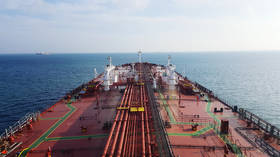Russian oil revenues much higher than reported – Goldman Sachs

Importers of Russian oil have increasingly paid more for the commodity than quoted prices to buffer the impact of Western sanctions, Oil Price reported, citing a note by Goldman Sachs published earlier this month.
The US investment bank revealed that the spread between the average effective price paid and the quoted crude price has widened since last March, and reached around $25 per barrel in December.
“We argue that the resilience in production so far may partly reflect that the effective price paid for Russian oil appears significantly greater than the quoted price assessments,” Goldman Sachs said.
Earlier in February, Russia announced it would voluntarily reduce oil production in March by 500,000 barrels per day as it halts sales to buyers that comply with a Western-imposed price ceiling.
The EU and the G7 have introduced price caps on Russian oil and petroleum products, setting a limit of $100 per barrel for diesel, jet fuel, and gasoline, and a $45-per-barrel ceiling for other oil products that trade below the market price. Fuel exports priced over these limits are barred from insurance and shipping services by companies in Western countries. The cap on refined products follows a previously introduced $60-per-barrel price limit on Russian crude oil.
Russia has repeatedly warned of potential output cuts since the EU and G7 began discussing caps on the price of Russian exports. The announcement sparked concern that the production cut, which is the equivalent of about 5% of January’s output, may trigger volatility on the oil market.
The developments come as Goldman Sachs predicts a “new supercycle” for energy assets this year, with oil prices forecast to rise to $100 per barrel by December.
Global crude prices jumped on Monday, with the Brent benchmark gaining 1.3% to trade at over $84 a barrel.
For more stories on economy & finance visit RT's business section













